Filter by
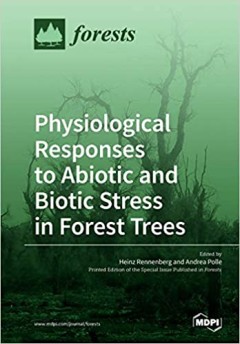
Physiological Responses to Abiotic and Biotic Stress in Forest Trees
As sessile organisms, plants have to cope with a multitude of natural and anthropogenic forms of stress in their environment. Due to their longevity, this is of particular significance for trees. As a consequence, trees develop an orchestra of resilience and resistance mechanisms to biotic and abiotic stresses in order to support their growth and development in a constantly changing atmospheric…
- Edition
- -
- ISBN/ISSN
- -
- Collation
- -
- Series Title
- -
- Call Number
- 628 POL p
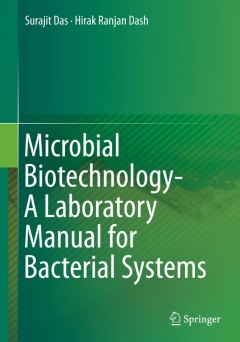
Microbial Biotechnology- A Laboratory Manual for Bacterial Systems
Microorganisms play an important role in the maintenance of the ecosystem structure and function. Bacteria constitute the major part of the microorganisms and possess tremendous potential in many important applications from environmental clean up to the drug discovery. Much advancement has been taken place in the field of research on bacterial systems. This book summarizes the experimental setu…
- Edition
- 1
- ISBN/ISSN
- 978-81-322-2094-7
- Collation
- XVI, 239
- Series Title
- -
- Call Number
- -
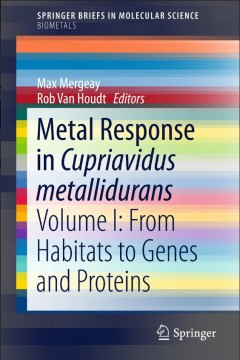
Metal Response in Cupriavidus metallidurans:Volume I: From Habitats to Genes …
This book is the first volume of a two-volume set summarizing 40 years of key research findings directly related to metal-resistant Cupriavidus/Ralstonia (Betaproteobacteria). In this first volume, the historical and geographical context of these bacteria, which are mostly found in industrial and polluted environments linked to zinc and other non-ferrous metallurgy, is sketched to illustrate th…
- Edition
- 1
- ISBN/ISSN
- 978-3-319-20593-9
- Collation
- IX, 89
- Series Title
- SpringerBriefs in Molecular Science
- Call Number
- -
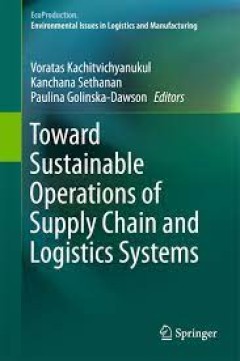
Toward Sustainable Operations of Supply Chain and Logistics Systems
This book addresses critical issues in today’s logistics operations and supply chain management, with a special focus on sustainability. In dedicated chapters the authors address aspects concerning multimode logistics operations, reverse network configuration, forward and reverse supply chain integration, improvement of the production operations and management of the recovery activities, as w…
- Edition
- 1
- ISBN/ISSN
- 978-3-319-19005-1
- Collation
- XI, 550
- Series Title
- EcoProduction
- Call Number
- -
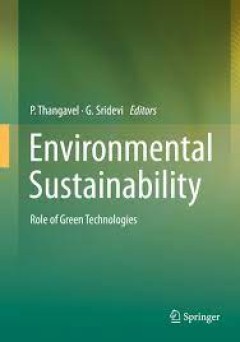
Environmental Sustainability Role of Green Technologies
Covers different categories of green technologies (e.g. biofuels, renewable energy sources, phytoremediation etc.,) in a nutshell -Focuses on next generation technologies which will help to attain the sustainable development -The chapters widely cover for students, faculties and researchers in the scientific arena of Environmentalists, Agriculturalists, Engineers and Policy Makers The World Env…
- Edition
- -
- ISBN/ISSN
- 978-81-322-2056-5
- Collation
- 26 b/w illustrations, 32 illustrations in colour
- Series Title
- -
- Call Number
- -
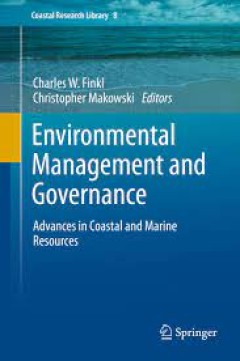
Environmental Management and Governance Advances in Coastal and Marine Resou…
This book deals with recent advances in coastal marine environmental management and governance. Various chapters consider new aspects of conservation, assessment of ecosystem health status, environmental survey and protection, frameworks of ocean service and governance, new applications of geo processing and GIS technology, beach management, aquaculture site selection, assessment of water quali…
- Edition
- -
- ISBN/ISSN
- 978-3-319-06305-8
- Collation
- 33 b/w illustrations, 120 illustrations in colour
- Series Title
- -
- Call Number
- -
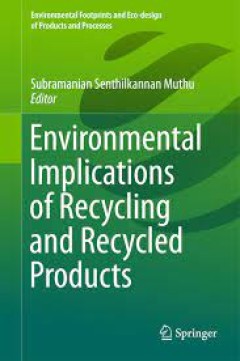
Environmental Implications of Recycling and Recycled Products
This book includes details on the environmental implications of recycling, modeling of recycling, processing of recycled materials, recycling potential of materials, characterisation of recycled materials, reverse logistics, case studies of recycling various materials etc.
- Edition
- -
- ISBN/ISSN
- 978-981-287-643-0
- Collation
- 48 b/w illustrations
- Series Title
- -
- Call Number
- -
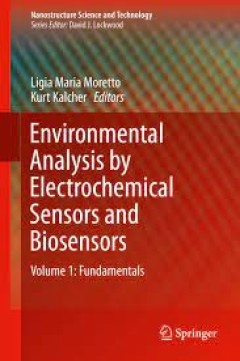
Environmental Analysis by Electrochemical Sensors and Biosensors Applications
This book discusses in detail the analysis and monitoring of the most important analytes in the environmental field. It also reviews the implementation, realization and application of sensor designs mentioned in the first volume of this set, dividing the coverage into global parameters, sensors of organics and sensors of inorganics.
- Edition
- -
- ISBN/ISSN
- 978-1-4939-1301-5
- Collation
- 65 b/w illustrations, 28 illustrations in colour
- Series Title
- -
- Call Number
- -
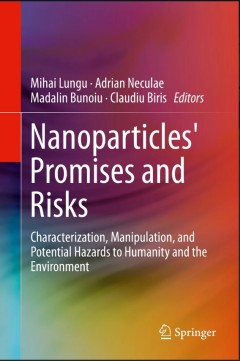
Nanoparticles' Promises and Risks
The focus of this interdisciplinary volume is on four areas of nanoparticle research: characterization, manipulation, and potential effects on humanity and the environment. The book includes a comprehensive collection of data on industrial nanoparticle creation and the characterization of the nanoscale products of these processes. The authors describe the effects of these nanoscale structures o…
- Edition
- 1
- ISBN/ISSN
- 978-3-319-11727-0
- Collation
- XIV, 355
- Series Title
- -
- Call Number
- -
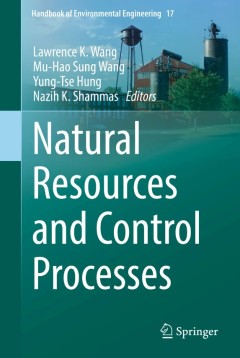
Natural Resources and Control Processes
This edited book has been designed to serve as a natural resources engineering reference book as well as a supplemental textbook. This volume is part of the Handbook of Environmental Engineering series, an incredible collection of methodologies that study the effects of pollution and waste in their three basic forms: gas, solid, and liquid. It complements two other books in the series including…
- Edition
- 1
- ISBN/ISSN
- 978-3-319-26798-2
- Collation
- XII, 633
- Series Title
- Handbook of Environmental Engineering
- Call Number
- -
 Computer Science, Information & General Works
Computer Science, Information & General Works  Philosophy & Psychology
Philosophy & Psychology  Religion
Religion  Social Sciences
Social Sciences  Language
Language  Pure Science
Pure Science  Applied Sciences
Applied Sciences  Art & Recreation
Art & Recreation  Literature
Literature  History & Geography
History & Geography